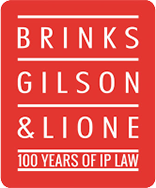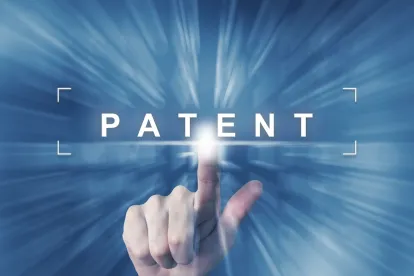After the Supreme Court’s TC Heartland[1] decision reaffirmed 28 U.S.C. § 1400(b) to be “the sole and exclusive provision controlling venue in patent infringement actions,” one important question remained as to whether foreign defendants (especially foreign corporations) in a patent case may invoke that provision to challenge venue. On May 9, 2018, the Federal Circuit denied HTC Corporation’s attempt to defeat venue based on § 1400(b), and held that provision does not provide an exception to the “long-established rule that suits against aliens are wholly outside the operation of all federal venue law, general and special.” In re HTC Corp., No. 2018-130, slip op. at 7 (Fed. Cir. May 9, 2018).
In In re HTC Corp., HTC Corporation, a Taiwanese corporation with its principal place of business in Taiwan, petitioned the Federal Circuit for a writ of mandamus seeking dismissal for improper venue pursuant to 28 U.S.C. § 1406(a) of a patent infringement action pending against HTC Corporation in the District of Delaware. Id. at 2. The Federal Circuit denied the mandamus petition after finding that HTC Corporation failed to meet each of the three conditions necessary for obtaining such a drastic remedy. Id. at 3-20.
First, the Federal Circuit found that HTC Corporation failed to demonstrate that it had “no other adequate means to attain the relief [it] desires.” Id. at 3-7. The Court noted that “unlike a defendant challenging the denial of a [28 U.S.C.] § 1404(a) transfer motion, a defendant aggrieved by the denial of an improper-venue motion has an adequate remedy on appeal from a final judgment,” namely, by obtaining an appellate “order vacating the judgment . . . and directing the remand of the action to the [appropriate venue].”[2] Id. at 4-5 (citations omitted).
Next, the Federal Circuit held that HTC Corporation failed to show a clear and indisputable right to the issuance of the writ. Id. at 7. The Court examined two Supreme Court decisions directly addressing whether the venue laws protect alien defendants. In In re Hohorst, the Supreme Court established what the Federal Circuit referred to as the “alien-venue rule.” 150 U.S. 653, 662 (1893) (holding that the venue restriction was “inapplicable to an alien or a foreign corporation sued here, . . . and that, consequently, such a person or corporation may be sued by a citizen of a state of the Union in any district in which valid service can be made upon the defendant”); In re HTC Corp., No. 2018-130, slip op. at 8. Later in Brunette Machine Works, Ltd. v. Kockum Industries, Inc., the Supreme Court upheld the alien-venue rule, despite the existence of § 1400(b). 406 U.S. 706, 714 (1972) (concluding that the “broad and overriding” principle stated in then-§ 1391(d)[3] “cannot be confined in its application to cases that would otherwise fall under the general venue statutes,” as the statute merely reflected the “long-established rule that suits against aliens are wholly outside the operation of all the federal venue laws, general and special”); In re HTC Corp., No. 2018-130, slip op. at 9-10.
The Federal Circuit further rejected HTC Corporation’s contention that “§ 1400(b) should apply to it because Congress abrogated Brunette—and the alien-venue rule—through the Federal Courts Jurisdiction and Venue Clarification Act of 2011 (‘the 2011 amendments’).” In re HTC Corp., No. 2018-130, slip op. at 10-11. The Court noted that § 1400(b) “was not intended to supplant the longstanding rule that the venue laws do not protect alien defendants.” In re HTC Corp., No. 2018-130, slip op. at 11; see also Brunette, 406 U.S. at 713-14 (“Since the general venue statutes did not reach suits against alien defendants, there is no reason to suppose the new substitute in patent cases was intended to do so”). The Court then held that the recent “TC Heartland [decision] d[id] not alter this conclusion” because “while § 1400(b) governs venue in patent cases, it governs only to displace otherwise-applicable venue standards, not where there are no such standards due to the alien-venue rule.” In re HTC Corp., No. 2018-130, slip op. at 12-13. The Court also found no indication that Congress intended to either “modify the alien-venue rule specifically for patent cases” or “discard the well-established alien-venue rule in favor of generally bringing alien defendants, including foreign corporations . . ., within the protection of the venue laws.”[4] Id. at 14-15. Although abiding by the alien-venue rule may create a loophole for a plaintiff to forum shop, the Court emphasized that HTC Corporation’s argument would “create[] a far more unsatisfactory loophole—a complete inability for a patent owner to bring its infringement claims against alien defendants that fall outside the non-residence-based clause of § 1400(b).” Id. at 19.
Therefore, the Federal Circuit determined that “[w]ith the Supreme Court having spoken on this issue twice [in In re Hohorst and Brunette], this court—without clear guidance from Congress—will not broadly upend the well-established rule that suits against alien defendants are outside the operation of the federal venue laws.” Id.
Finally, as to the third condition of obtaining the mandamus relief, the Federal Circuit was not convinced that a writ would be warranted in this case “even if [HTC Corporation] had satisfied the first two mandamus requirements,” because HTC Corporation cited no case adopting its interpretation while “characterize[ing] this legal issue as ‘unsettled’ and resulting in ‘inconsistent’ holdings.” Id. at 20.
Implications
- In patent infringement actions, venue is now proper in any judicial district for foreign defendants, including foreign corporations. The foreign defendants cannot rely on § 1400(b) or even the general venue statutes to dismiss or transfer a case pursuant to § 1406(a).
- Depending on the particular facts in a case, foreign defendants may still seek to transfer the patent infringement action pursuant to § 1404(a).
- In patent infringement actions against foreign defendants, plaintiffs’ ability to force foreign defendants into an unfavorable forum can give the plaintiffs additional leverage in settlement negations.
[1] TC Heartland LLC v. Kraft Foods Grp. Brands LLC, 137 S. Ct. 1514 (2017).
[2] The Court did recognize that “while an appeal will usually provide an adequate remedy for a defendant challenging the denial of an improper-venue motion, there may be circumstances in which it is inadequate.” But the Court determined that it was unnecessary to articulate such
circumstances in this case, because HTC Corporation’s “only argument is that it should be able to avoid the inconvenience of litigation by having this issue decided at the outset of its case,” which was rejected by the Supreme Court in Bankers Life & Cas. Co. v. Holland, 346 U.S. 379, 383 (1953) (“[T]he extraordinary writs cannot be used as substitutes for appeals, even though hardship may result from delay and perhaps unnecessary trial.”). In re HTC Corp., No. 2018-130, slip op. at 6-7.
[3] Section 1391(d), at the time, stated that “[a]n alien may be sued in any district.” 28 U.S.C. § 1391(d) (1970).
[4] The Court noted that “Congress made only one clear change to the alien-venue rule in 2011” by “grant[ing] venue protection to alien natural persons having permanent resident status” but implemented “no comparable change with respect to foreign corporations.” In re HTC Corp., No. 2018-130, slip op. at 13-17.





 />i
/>i

